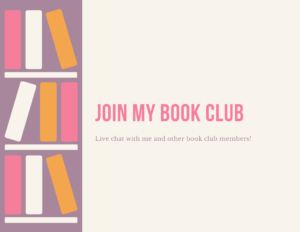Excerpt: Sticks and Stones by Terri Giuliano Long
Excerpt: “Sticks and Stones: The Changing Politics of the Self-Publishing Stigma”
For better or worse, the days when they were the sole gatekeepers are behind us. Today, rejection by traditional houses says little about a book. “Some wonderful books [are rejected] for various reasons—nothing to do with quality,” says Jenny Bent. A publisher may reject a book because it doesn’t fit into a clear category. A traditional house may also turn down a book if it doesn’t have an obvious audience or if the author has too small a platform or a poor sales track with previous books.
In the old days, determined authors turned to self-publishing—or vanity presses, as they were called—as a last resort. Serious authors, concerned about being black- balled, dared not self-publish. As a result, talented authors like John Kennedy Toole, whose posthumously published masterpiece, A Confederacy of Dunces, won a Pulitzer Prize (1981), went to their grave believing their work did not measure up.
Today, many talented authors choose the self-publishing route and they do it for a variety of reasons. Jackie Collins recently shocked the literary world with her announcement that she planned to self-publish a new, rewritten version of her novel The Bitch. “Times are changing,” Collins said of her decision, “and technology is changing, so I wanted to experiment with this growing trend of self-publishing.”
Industry superstars like New York Times bestselling authors Barbara Freethy and C.J. Lyons use self-publishing platforms to market their out-of-print backlists. Other authors are drawn to self-publishing because of its flexibility, the ability to publish within their own timeframe, for instance—perhaps to leverage topical interest or mark an anniversary. Others authors self-publish out of a desire for artistic control.
Self-publishing can also be a practical way to build an audience. Today, publishers expect authors to have a solid platform. By self-publishing, emerging authors can build the fan base necessary to attract a traditional publisher for their next work. Other authors, long-timers as well as newbies, feel they can make more money on their own. At $2.99 a pop, authors earn nearly $2.00 on every eBook sale. Even at 99¢, with average royalties of 33¢ to 60¢, earnings on a hot-selling book can quickly out-pace the meager advance offered to all but the superstars by a traditional house.
These days—insult-hurling aside—traditional and indie authors are more alike than different. Mindful of their increased scrutiny, self-publishers take full advantage of the myriad professional services available to authors. Indies hire experienced editors to copyedit and proofread. For their cover and interior designs, some work with the same graphic artists who design for the traditional houses. Professionals are available and widely used to covert documents to digital and paperback formats, and POD printing has gotten so good that, to the typical untrained eye, print-on-demand books are virtually indistinguishable from books printed on an offset press.
Literary agent and publishing consultant Joelle Delbourgo, founder and president of Joelle Delbourgo Associates, Inc., formerly a senior publishing executive at Random House and HarperCollins, says some self-publishers go a step further and work with a professional publishing partner, a strategy she recommends. A publishing pro with a track record of success can bring an author to the next level, Delbourgo says.
For a few years, Bethanne Patrick, a publicist and media consultant also known as “The Book Maven,” creator of the global reading community Friday Reads, was skeptical of self-publishing. Through her work in social media, Patrick has read more indie titles and gotten to know writers who’ve chosen to self-publish. More and more indie authors, she’s noticed, seek the advice of freelance editors, publicists, and marketing consultants—and she’s intrigued.
As well-educated and experienced writers—emerging authors who’ve honed their craft as well as established and traditionally published authors—increasingly opt to go the indie route, the bar is rising. As with indie musicians and filmmakers, indie authors bring new life to an evolving industry. Today, readers have access to a wealth of funny, poignant, brilliant voices of talented new authors from around the globe—voices that, just a few years ago, might have been silenced by the old guard.
The opportunity to self-publish—to publish their books their own way—has given both emerging and established authors more freedom than ever before. So, yes, now that readers choose which books to purchase and support, dollars may shift and some traditional authors may be forced to give up a slice of the pie. Change is never easy; inevitably, there are bumps and bruises along the way. But, like or not, indie publishing is here to stay. And the publishing world will be all the richer for it.

